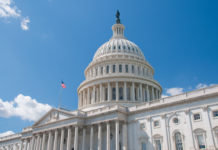On September 17, CMS released proposed regulations to promote efficiency and transparency as well as reduce burden. Nursing home regulations were notably not included in the proposed rule, however its emergency preparedness provisions affect all Medicare and Medicaid providers (including nursing homes)
The proposed rule, when finalized, would revise CMS’s September 2016 final rule on Emergency Preparedness and the related implementation provisions published in November 2017. The focus of this new proposal is to reduce the burden and associated costs related to complying with the existing emergency preparedness requirements. proposed changes will affect all Medicare and Medicaid participating healthcare providers including nursing homes.
Specific proposals include:
- Amending the requirement to review and update the Emergency Preparedness Program (EPP) annually. The proposal would permit review every two years or potentially longer at the provider’s own discretion.
- Amending the annual training requirement to allow training to occur every two years after initial education in the EPP has occurred.
- Amending the testing requirements to permit one of the required testing exercises to be in the form of a simulation or workshop. Currently, two exercises are required annually with one of the exercises being a full scale/community-based exercise. This proposal would permit more flexibility for the second exercise which currently must minimally be a paper-based table-top exercise.



